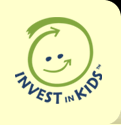By age three, your child is becoming more and more her own person and you'll be able to get a real sense of personality. Your child will gain self-esteem and a sense of who she is. Children are not as afraid of being abandoned now, and are generally optimistic and cheerful. Your child is probably more willing to please you, but that won't stop him from expressing his own unhappiness and opinions about things. This is actually a step forward, because your child will learn to stand up for himself, so try not to discourage it totally. Your three-year old will be sociable and capable of some cooperative play, although she still won't be great at taking turns or sharing. She may spend more time negotiating how to play, and with whom, than actually playing. For example, "I'm not playing with you today, I'm playing with her." Your child will be getting better at pretend play, with themes and stories, not just roles. His play may often have a "danger and rescue" theme with him taking the lead as the strong character, like Superman or a lion. Try to give your child the opportunity for play, both alone and with others, as often as possible. By now, your child will begin to understand simple rules and be better at controlling her impulses. There may be fewer tantrums, because she can express herself and her feelings better with words. She may label feelings, like "I'm mad" or "I'm tired." Your child will also begin to understand that other people have feelings too. He will have more understanding of what "no" means, but that doesn't necessarily mean he'll do what you're telling him. Setting consistent limits and expectations continues to be important at this stage of development. Remember, each child is unique. Not all children develop at the same rate in each area, such as movement, communication and relating to others, so this information is meant only as a general guide. If you have concerns about your child's development, you should consult your child's doctor.
| 
